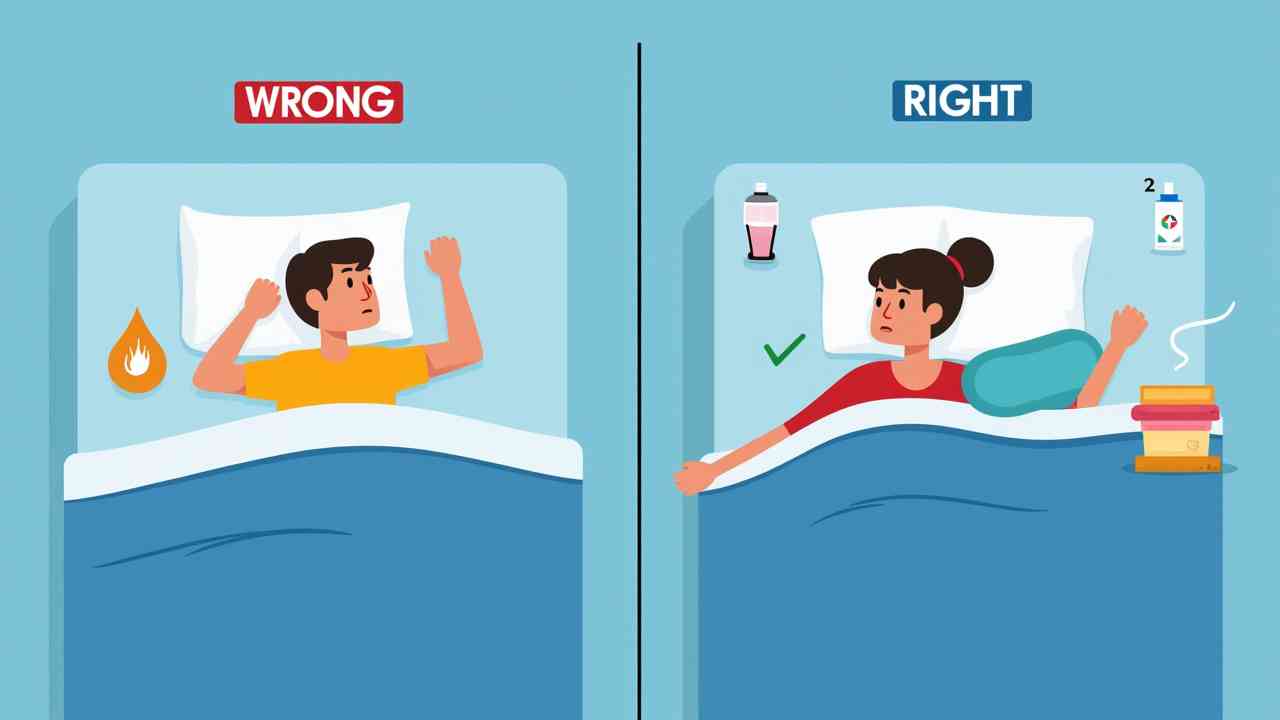
👃 How to Sleep with a Blocked Nose (A Guide to Breathing Easier)
👃 A Guide on How to Sleep with a Blocked Nose 👃
There are few things more frustrating than trying to sleep with a blocked nose. You lie down, and suddenly, you cannot breathe. This forces you to breathe through your mouth, which leads to a dry throat and a restless, uncomfortable night. This is a very common problem, especially as the cool, dry air of autumn arrives and cold season begins.
So, how do you sleep with a blocked nose? The good news is that there are several simple and effective strategies. You can use these to find significant relief. The key is to use gravity and moisture to your advantage. This guide will walk you through the best methods. Let's get you on the path to a more restful night. ✅
🤔 First, Why Does a Blocked Nose Get Worse When You Lie Down?
This is not your imagination. Nasal congestion often gets significantly worse at night. The main reason is gravity. When you are standing or sitting up, gravity helps to drain the mucus from your nasal passages. When you lie down flat, this drainage stops. The mucus can pool in your nose, leading to that stuffy feeling.
Additionally, when you lie down, the blood flow to your head increases slightly. This can cause the blood vessels inside your nose to swell, which further narrows the passages and worsens the congestion.
- What Are the Best and Safest Relief Strategies?
Here are the top five doctor-approved methods for breathing easier at night. A combination of these is often the most effective approach.
1. Why is Elevation Your #1 Best Friend? ⭐
This is the single most effective trick. You need to prop your head up. By elevating your head above your heart, you are using gravity to help drain your sinuses. This also reduces the blood flow to your nose, which can help to decrease swelling.
How to do it: Use an extra pillow or two to prop up your head and shoulders. An even better option is a wedge pillow, which provides a more gradual and supportive incline.
2. How Can You Add Humidity to the Air? 💧
Dry air can irritate your nasal passages and make congestion feel worse. Adding moisture to the air can be very soothing. It helps to thin the mucus, making it easier to clear.
How to do it: Run a cool-mist humidifier in your bedroom at night. Taking a hot, steamy shower right before bed is another fantastic way to temporarily clear your sinuses.
3. What is the Power of Saline?
A simple saline (salt water) nasal spray is a safe and effective tool. It works by moisturizing your nasal passages and helping to loosen and thin out the mucus. Unlike medicated sprays, you can use a simple saline spray as often as you need to.
4. How Do Nasal Strips Work?
These are adhesive strips that you place on the outside of your nose. They work by gently pulling your nostrils open. This physically increases the space in your nasal passages, which can make it easier to breathe.
5. What Should You Avoid Before Bed?
Certain substances can make congestion worse. It is a good idea to avoid alcohol and caffeine in the hours leading up to bedtime. These can be dehydrating and can sometimes worsen inflammation.
- What About Medicated Decongestant Sprays? ⚠️
Over-the-counter decongestant sprays can provide powerful, temporary relief. However, you must use them with extreme caution. They should NOT be used for more than three consecutive days. Using them for longer can cause a condition called "rebound congestion," which can make your stuffiness even worse. For persistent congestion, it is always best to see a doctor. 🩺